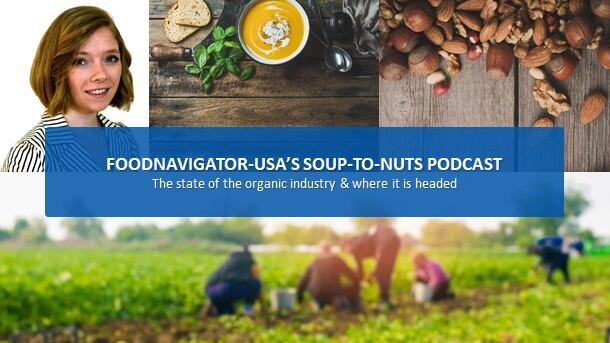The Organic Agronomy Training Service (OATS) Project was created under the umbrella of OTA’s industry-invested organic research, promotion and education program GRO Organic to provide transitional and certified organic farmers with “robust access to technical service expertise” and “unbiased, science-based agronomic support for their farming operation,” according to the trade group, which announced Aug. 12 that it is expanding and strengthening its support for the program.
This includes acting as the fiscal sponsor for OATS and helping to appoint as its new national program director Mallor Krieger, a farmer who recently served as the Farmer Training Program Manager for The Land Connection based in Champaign, Ill.
“As non-profits and universities are training organic and transitional farmers, they are receiving feedback from these new growers that they are in need of more individual technical assistance. Most of the programs for training farmers are based on group learning models, like workshops/field days/conferences/webinars/videos/etc. These are great for providing foundational knowledge – but every farm is a unique cluster of factors like soil type/rain patters/local markets/ weed pressure/etc.,” Krieger told FoodNavigator-USA.
She added that “these farmers are craving and willing to pay for individualized advise, help navigating transition and certification.”
OATS will expand outreach, refine curriculum
According to OTA, OATS can help fill that need by providing additional training and developing one-on-one guidance and technical assistance for farmers.
By the end of the month, OATS will have hosted three successful pilot trainings in the Midwest focused on organic row crop production to more than 100 participants, including farmers, agronomists, crop advisors and academics.
At a high level, the trainings include a brief introduction to organic, soil health in organic systems, fertility management, weed control, crop rotation, cover crop integration, reduced tillage strategies, pest management, post-harvest handling, organic certification and record keeping, organic markets and budgeting and financial performance in transitional and organic operations, Krieger said.
As OATS enters Phase 2, Krieger added that additional trainings will be held in the same three regions as during the pilot and in two additional regions that will be determined based partly on participant feedback from the pilot trainings as well as input from the newly formed OATS Steering Committee.
“Another big component of Phase 2 … is to develop an accurate way to measure the success of the trainings and to create a system to get the data and the information to farmers,” according to OTA.
GRO Organic update coming
OATS is only one of several programs supported by OTA’s industry-funded GRO Organic program, which was created when a planned federally mandated organic checkoff-program fell through after the Trump Administration took office.
The goal of GRO, which stands for Generate Results and Opportunities for Organic, is to engage the full organic supply chain in promoting the organic brand and organic production practices as well as advance research to solve problems facing organic farmers, processors, handlers and businesses, OTA explained when it announced the program last November.
OTA plans to provide a detailed update on various projects under the GRO Organic program during the Organic Center’s Annual Confluences Conference the week of Natural Products Expo East. Also, at Expo East, GRO Organic will host a technical assistance workshop for stakeholders around former USDA organic policy advisor Mark Lipson’s assessment of organic technical assistance schemes.




